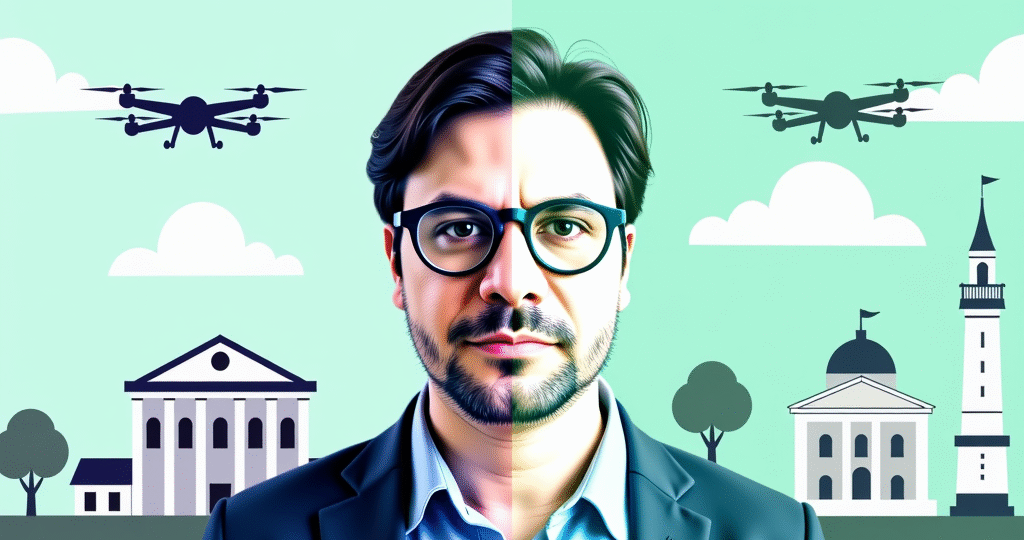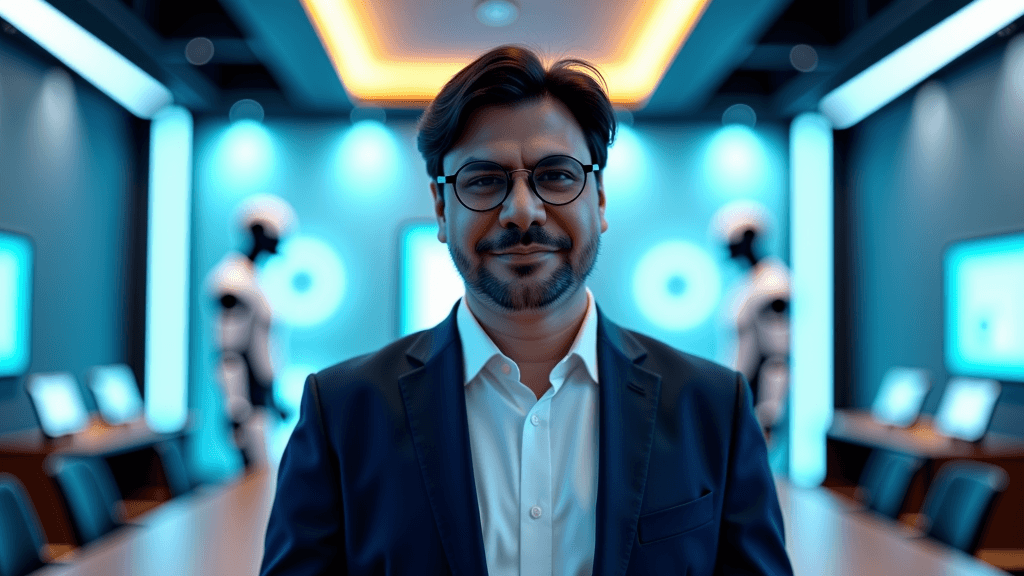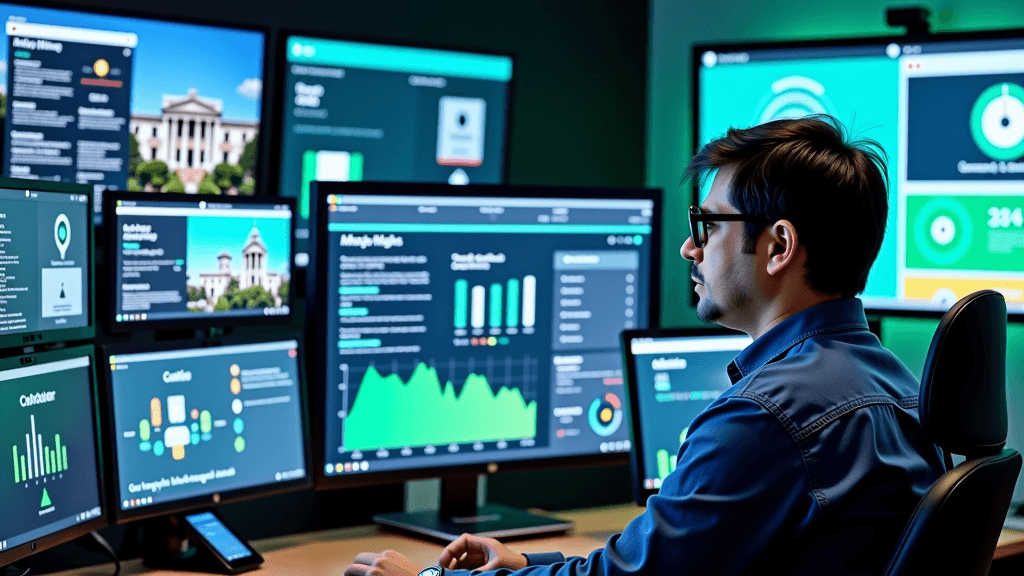OpenAI Abandons Pacifist Policy and Wins $200 Million Military Contract — What This Reveals About the Future of AI
June 18, 2025 | by Matos AI

Artificial intelligence has just crossed a line that many considered insurmountable. OpenAI has secured its first US$1.4 billion military contract with the US Department of Defense to develop anti-drone systems that will protect Washington D.C. For a company that until recently had explicit policies against the military use of its technologies, this change represents much more than a business decision.
The figure may seem modest compared to OpenAI’s $10 billion in revenue, but the symbolism is huge. We are witnessing the moment when generative AI — the same technology that amazes us by creating poems and answering questions — officially enters the battlefield.
The $1.9 Trillion Market That Changed Everything
It’s not hard to understand the temptation. The US defense budget for 2025 is a staggering $1.9 trillion, with $872.9 billion earmarked for the Department of Defense. To put that in perspective: that’s more than four times Brazil’s GDP.
Join my WhatsApp groups! Daily updates with the most relevant news in the AI world and a vibrant community!
- AI for Business: focused on business and strategy.
- AI Builders: with a more technical and hands-on approach.
Sam Altman may have raised OpenAI’s valuation to $300 billion, but when you have a market of that magnitude beckoning, even the most solid convictions start to waver. The partnership with Anduril, a startup that was already a veteran in the military market, shows that this was not a one-off decision, but a calculated strategy.
In my experience supporting the development of thousands of startups, I’ve seen how the pressure to grow and the search for profitable markets can completely redefine a company’s mission. But rarely have I seen a shift as radical as this one.
When Bots Attack Culture
As OpenAI militarizes, another silent problem looms larger. AI Bots Are Literally Attacking Libraries, Museums, and Archives Around the World, overloading their servers in an insatiable search for data to train new models.
The GLAM-E Lab study found that 39 of the 43 cultural institutions surveyed reported denial-of-service (DDoS) attacks, making it difficult for the public to access their collections. It’s a cruel paradox: while we create more “intelligent” AIs, we are harming the very institutions that preserve human knowledge.
This makes me wonder: Are we building AI that makes us dumber? When bots voraciously consume our cultural heritage but make it harder for us to access it, something is fundamentally wrong with the equation.
The Urgency of Governance
As highlighted by Professor Diogo Cortiz from PUC-SP, the advancement of autonomous AI agents poses urgent governance, security, and privacy challenges. McKinsey projects significant GDP impacts by 2030, but without clear regulatory frameworks, we are navigating blind.
OpenAI’s entry into the military market only amplifies this urgency. When AI systems are given the autonomy to make life-or-death decisions, the rules of the game change completely. We’re no longer talking about chatbots that can hallucinate incorrect answers — we’re talking about systems that can hallucinate targets.
The Future of Work in Check
About that, startups like Mechanize in San Francisco openly announce their intention to “kill jobs” by automating administrative work. As brutally honest as this approach is, it exposes a reality that many prefer to ignore.
Automation is no longer a distant promise — it’s a present reality that is reshaping the job market in real time. And here’s a question that particularly concerns me: women are being left behind in this transition.
Digital Exclusion is Not Neutral
Studies show that women are 20 percentage points less likely to use ChatGPT, even in the same work environment. At the same time, they hold more jobs at risk of automation and face significant disparities in digital skills.
As someone who has always advocated for diversity as a driver of innovation, I see a twofold problem here: not only are we losing valuable talent, but we are also creating AI systems that are less diverse and, consequently, less effective.
The lack of diversity in AI isn’t just a social justice issue—it’s a technical quality issue. Systems created by homogeneous teams tend to reproduce biases and limitations that compromise their effectiveness.
There is Hope in the Right Places
It's not all bad news. The “Augmented Director” concept shows how AI can humanize, not dehumanize, education. When used to reduce administrative tasks and enable more human interactions, AI fulfills its original promise of making us more efficient in order to be more human.
This is the kind of application that gives me hope. AI should free us to do what we do best: connect, create, teach, care. When it replaces us in these essentially human roles, we lose something fundamental.
The Brain Under Attack
Miguel Nicolelis raises an even deeper question about the irreversible effects of AI on our brains. Your concern about the increasing reliance on “not truly intelligent” systems resonates with something I observe daily: we are outsourcing our ability to think.
When we delegate our memory, our creativity, and even our judgment to machines, what kind of humans do we become? It’s a question that should keep us up at night, especially now that those machines are being militarized.
What This Means For You
If you lead a company, a startup or simply want to navigate this changing world, some reflections are inevitable:
- Preparation is everything: AI won’t wait for you to make up your mind. Be proactive in understanding how it can impact your business and industry.
- Diversity as a strategy: Diverse teams create better AI solutions. That’s not activism, that’s efficiency.
- Ethics as a differential: In a world where giants like OpenAI abandon principles for profit, maintaining clear values can be your greatest competitive advantage.
- Humanity as an advantage: As AI advances, our most human skills—empathy, creativity, ethical judgment—become more valuable, not less.
The Crossroads of Our Generation
We are at a historic crossroads. OpenAI’s decision to militarize its technology, bots attacking our cultural heritage, the increasing exclusion of vulnerable groups — these are all symptoms of a larger problem: we are letting technology shape us, rather than consciously shaping it.
AI will transform everything — that’s inevitable. The question is: will we allow this transformation to happen in a predatory and exclusionary way, or will we take control and direct it to create a more inclusive and humane future?
In my mentoring work, I see entrepreneurs and leaders struggling to find this balance. How can we use AI to grow without losing our soul? How can we automate processes without dehumanizing work? How can we innovate without reproducing exclusions?
These are the questions that define our age. And the answers we find today will determine the world we leave for future generations.
If you’re navigating these transformations at your company or startup, know that you don’t have to do it alone. In my mentoring, I help leaders harness the potential of AI while keeping their values and humanity intact. Because at the end of the day, the best AI in the world is still the one that makes us more human, not less.
✨Did you like it? You can sign up to receive 10K Digital's newsletters in your email, curated by me, with the best content about AI and business.
➡️ Join the 10K Community here
RELATED POSTS
View all



